The latest military coup in Niger has not only pushed Africa's most resource-rich country into a new spiral of instability, but also fueled a return of coups to the region.
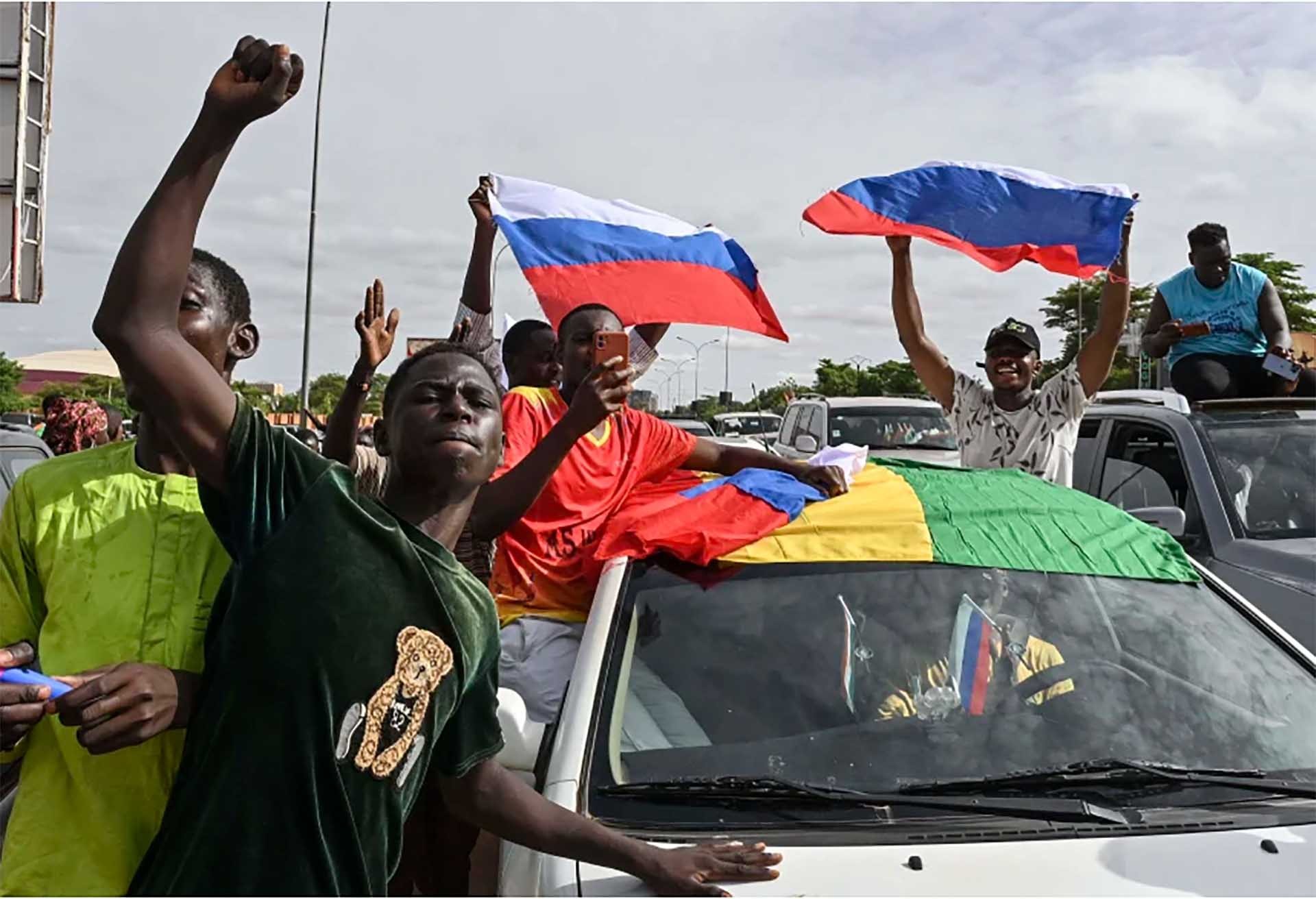 |
| Coup supporters wave Russian flags as they protest in the capital Niamey, August 6. (Source: AFP) |
Things seemed to be “going smoothly” in Niger, a country that the West considers a key ally in Africa. Suddenly, on July 26, General Abdourahamane Tchiani, head of the Niger Presidential Guard, arrested elected President Mohamed Bazoum, declared himself “elected head of state,” ordered the closure of the border, abolished the Constitution, and imposed a nationwide curfew.
The Economic Community of West African States (ECOWAS), the African Union (AU) and a number of related countries and international organizations such as the US, France, Germany, Russia, China, the EU, the World Bank, etc. have all opposed the coup, calling for the release and reinstatement of elected President Bazoum. However, the Niger military government has resolutely refused to give in and has shown that it is not ready to participate in negotiations promoted by the international community. The coup faction has even declared that it will prosecute and “eliminate” President Bazoum if outside forces intervene militarily in Niger.
Land of the main island
According to a study, Africa has experienced 80 successful coups and 108 failed coups since 1956. Although military coups have halved in the region between 2019 and 2022 as most African countries transitioned to democracy, coups have been on the rise in recent years, with coups in Mali, Sudan, Zimbabwe and Burkina Faso, and most recently the July 26 military coup in Niger.
In Mali, on August 18, 2020, Colonel Assimi Goita staged a coup to overthrow President Ibrahim Boubacar Keita, who had been in power since 2013. In May 2021, Mr. Assimi Goita continued to depose interim President Bah Ndaw and took over power until now. In Chad, on April 21, 2021, with the support of the Transitional Military Council (CMT), General Mahamat Déby replaced his father who was murdered in a military operation. In Guinea, on September 5, 2021, Colonel Doumbouya staged a coup to overthrow President Alpha Condé, who had been re-elected since 2010.
In Sudan, on October 25, 2021, General Abdel Fatah al-Burhane staged a coup amid the country's transition following the fall of the al-Bashir regime in 2019, ending the civilian-military government and arresting Prime Minister Hamdok. In Burkina Faso, on January 24, 2022, Lieutenant Colonel Paul-Henri Sandaogo Damiba overthrew President Roch Marc Christian Kaboré, who had been elected in 2015. In October 2022, Captain Ibrahim Traoré staged a coup and replaced Lieutenant Colonel Damiba as leader of the country.
In Niger, the coup plotters on July 26 claimed that “the government of the democratically elected President has failed in its economic policy, putting the country at risk of increasing instability.” However, observers say that there were other factors that led to the coup, such as ethnicity, the growing presence and involvement of foreign forces, and “weakness and disunity” in the region.
What is the cause?
The history of coups in Africa in general and in the West African region in particular shows that the causes of military coups are a number of recurring problems, mainly originating from internal and external factors. Despite some democratic achievements, democracy in West Africa is still described as “superficial” or “half-hearted”.
Some incumbent presidents in West Africa have tampered with constitutional provisions to stay in power longer. This has fueled discontent and is one of the causes of coups. The political conditions in Niger, Mali, Guinea and Burkina Faso are closely related to each country’s tumultuous past and present.
Across the sparsely populated Sahel, poor local governance creates space for jihadist and extremist terrorist movements. This leads to a loss of confidence in local authorities, creating the conditions for military coups.
During his time as President of Mali, Ibrahim Boubacar Keita was heavily criticized and forced to resign by protesters for his ineffective response to the Islamist insurgency, a series of corruption scandals and disputed elections. The latest coup in Niger was similarly blamed on the president’s civilian government’s failure to deliver effective economic and security policies.
In addition, foreign influence and strategic competition make coups more likely in West Africa. For four decades, since the 1960s, coups in Africa have occurred in the context of US-Russian competition for influence on the continent and, more recently, China’s involvement.
One of the underlying causes of the recent mutiny in Niger is the military’s unwelcome presence of foreign forces and bases in the West African country. The Niger military believes that having too many foreign forces will weaken the country’s military.
Four years ago, the US opened a drone base in Niger, despite opposition from many who said the base could make Niger a target for terrorists and further destabilize the country. In 2022, France and several other European allies withdrew their troops from Mali, Niger’s neighbor. Niger’s president at the time invited France to station these troops in Niger.
Military leaders and some influential individuals in Niger are not happy about this. France currently has about 1,500 troops stationed in Niger, the US about 1,000 and Germany also has about 100 troops before withdrawing in December this year.
In Mali, regional and international efforts to stabilize the country have focused too much on security and overlooked governance failures, which are seen as contributing factors to the coup in the West African country in 2020. France, the United States, and the EU provided security assistance to Mali from 2012 to 2020 but did not develop a diplomatic engagement strategy to resolve Mali’s political crisis.
The failure of Paris, Washington and Brussels to meet the essential and critical security management needs of the Malians has exacerbated the political crisis in the West African country, resulting in two coups in 2020 and 2021. Assimi Goïta, the leader of the two coups in Mali, is believed to have received support and training from the United States. French influence on political developments in West Africa is almost certain, as many countries in the region were former French colonies. General Tchiani, the mastermind of the latest coup in Niger, was backed by troops trained in France, Morocco, Senegal and the United States.
Unforeseen consequences
The latest coup in Niger reflects an alarming trend: a resurgence in military coups that has left the continent far from the “relative stability” of the early 2000s.
Africa has long been a battlefield for geopolitical competition between major powers. After the coup, analysts said that France and the West were being “kicked out” of Niger to make way for Russia and China. When the coup took place in Niger, people in the capital Niamey took to the streets waving Russian flags, chanting “Long live Putin” while “down with France” and tearing down the French Embassy sign in the capital Niamey.
The coup in Niger could threaten Beijing’s investments, but it could also be an opportunity for China to increase its influence in the region. According to China’s Ministry of Commerce, China National Petroleum Corporation and China Nuclear Corporation have invested $4.6 billion and $480 million respectively in oil and uranium exploration in Niger.
In addition, the military government's refusal to make concessions, which will certainly not be recognized internationally, and the cutting off of development assistance will negatively impact the development and lives of people in a country where millions of people need humanitarian assistance.
At the same time, the coup may create new stimulants for coups, widespread riots, creating opportunities for terrorist forces in the region to increase their activities. This will cause Niger and the entire continent to face a new spiral of comprehensive instability.
Source



![[Photo] Overcoming all difficulties, speeding up construction progress of Hoa Binh Hydropower Plant Expansion Project](https://vstatic.vietnam.vn/vietnam/resource/IMAGE/2025/4/12/bff04b551e98484c84d74c8faa3526e0)

![[Photo] Closing of the 11th Conference of the 13th Central Committee of the Communist Party of Vietnam](https://vstatic.vietnam.vn/vietnam/resource/IMAGE/2025/4/12/114b57fe6e9b4814a5ddfacf6dfe5b7f)


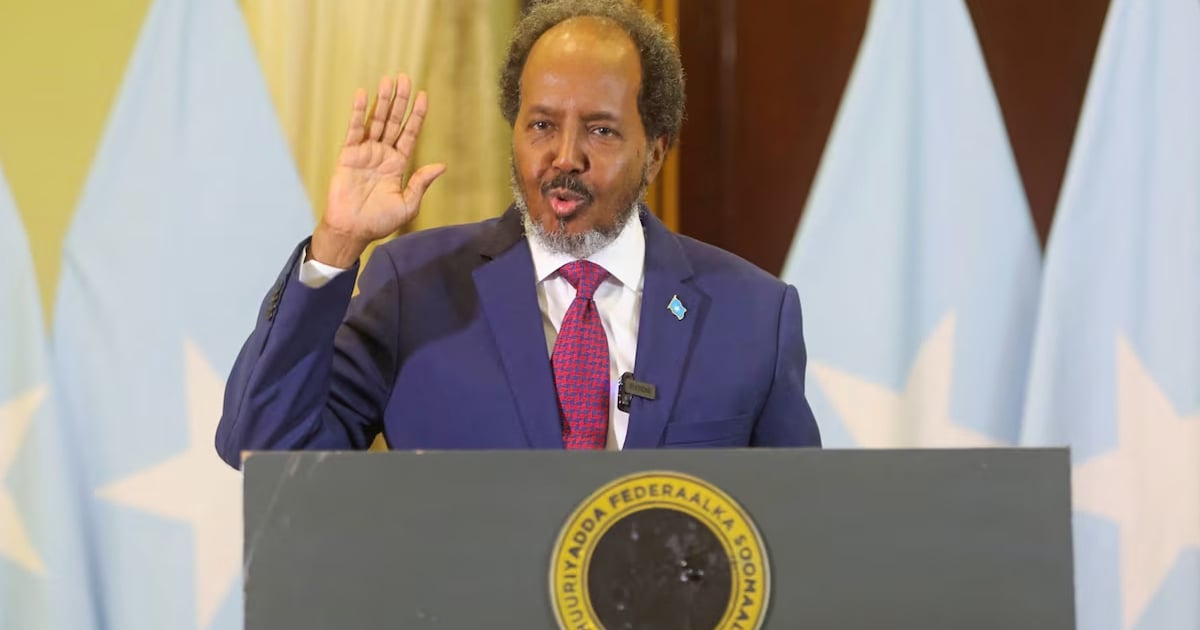

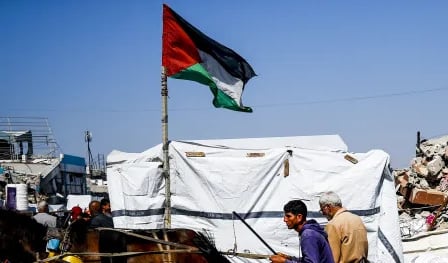

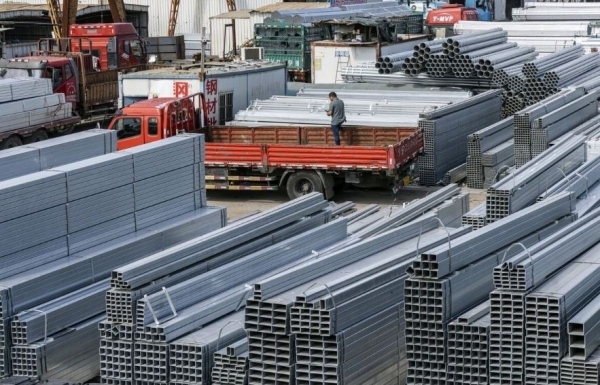

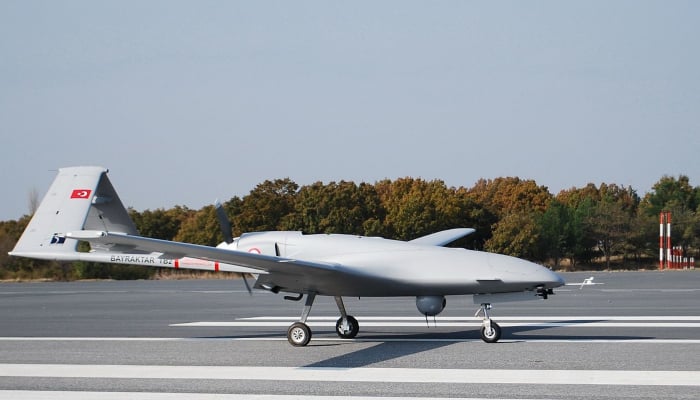












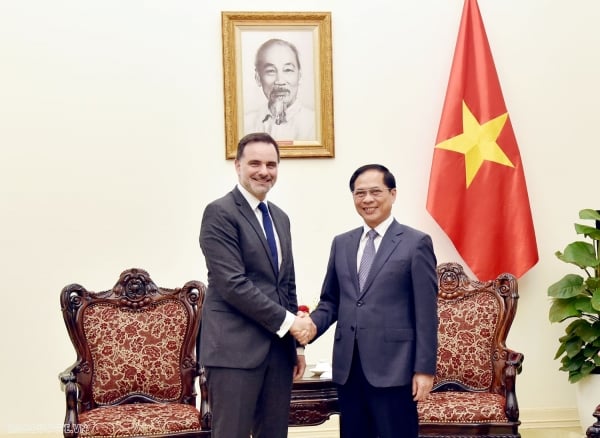
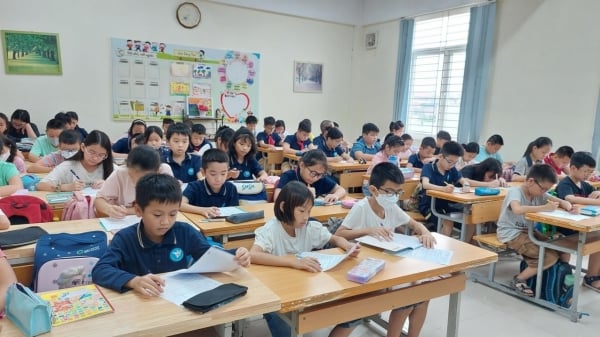


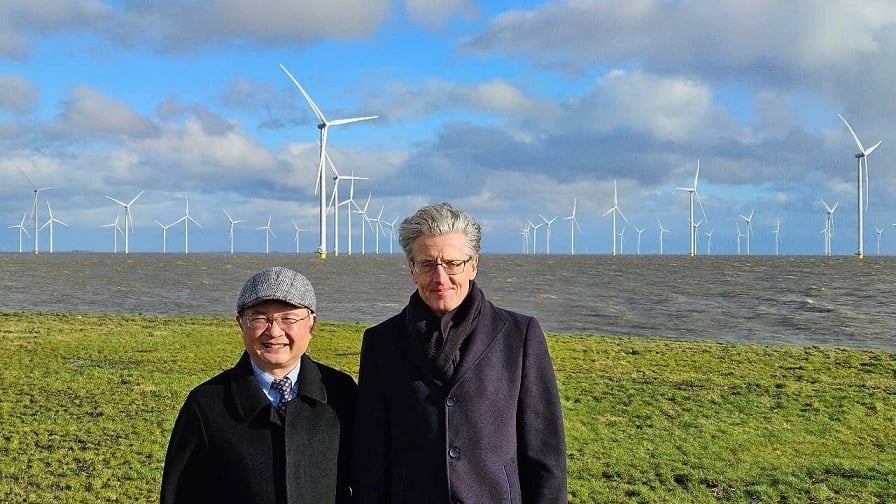

















































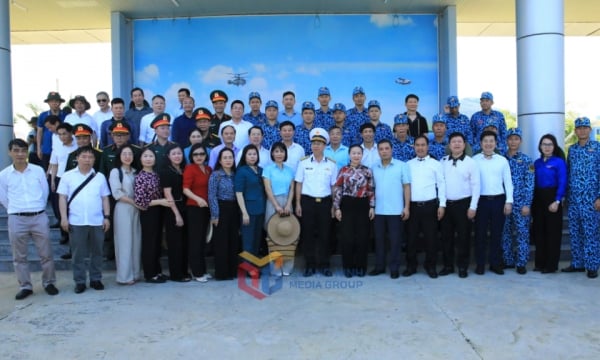















Comment (0)